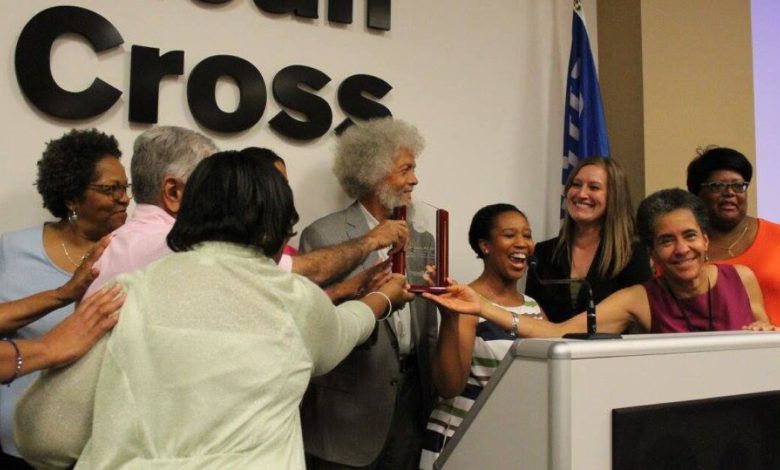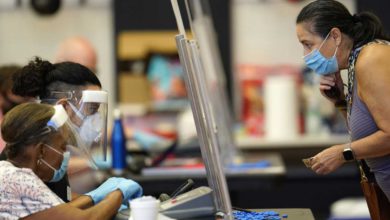
CINCINNATI — A former Cincinnati health commissioner takes his racial discrimination lawsuit against the University of Cincinnati to federal court on Monday, opening a one-week civil trial that will focus on the hiring practices of one of the city’s largest employers.
Dr. Noble Maseru, 75, served as the city’s health commissioner overseeing 450 employees and numerous medical and dentistry centers with an annual budget of $49 million. He resigned in May 2016 after a decade at the helm.
A few months later, in October 2016, he applied to be an associate professor of health policy management at UC’s Environmental Health Department.
Maseru met with Dr. Jun Ying, then director of UC’s Master of Public Health program, about the job and was told he would “move things along,” according to the lawsuit.
Then on Dec. 2, 2016, Ying informed Maseru that the search committee had decided not to pursue his candidacy, according to the lawsuit.
Courtesy: Cincinnati Health Department
“I was highly qualified for the position. I had over 30 years of experience in public health, had served as the health commissioner for the city of Cincinnati, had served as an adjunct professor at UC, and had assisted in the development of UC’s Master of Public Health program,” Maseru wrote in the lawsuit filed in U.S. District Court in Cincinnati in February 2018.
“Despite my qualifications, I was denied the chance to even interview for the position,” the lawsuit states. “UC hired a less-qualified caucasian for the position.”
The University of Pittsburgh later hired Maseru, where he is now the director of Social Justice, Racial Equity and Faculty Engagement at the school’s Office of Health Sciences.
Maseru is seeking unspecified damages, back pay, benefits, and attorney’s fees.
This trial will not just focus on Maseru. That's because U.S. District Court Judge Matthew McFarland is allowing testimony that may put UC's entire environmental and public health program in the spotlight.
The judge ruled that Maseru's attorney can bring up other alleged acts of racial discrimination within the hiring process of professors at the department, and statistical evidence about the racial makeup of the department.
"This case rises and falls on hiring practices within UC' s Department of Environmental Health," McFarland wrote in his Oct. 13 order allowing some broader testimony.
A spokesperson for UC declined to comment. Maseru’s attorney, David Torchia, did not respond to several emails and calls from WCPO.
Torchia also represented former city manager Harry Black. He helped negotiate a total buyout from the city worth $544,000 in cash plus benefits, after Black resigned minutes before Cincinnati City Council was set to fire him in April 2018.

Courtesy: Cincinnati Health Department
Court filings from UC reveal that, “Maseru was not interviewed or hired simply because he was not ranked among the top three candidates. The primary reason for this was because UC determined that Dr. Maseru had a ‘poor record’ of academic research, publications, teaching and administrative experience.”
Maseru took issue with the scoring matrix used to identify which of the top three candidates were granted interviews and maintains that it was manipulated.
UC had tried to argue that the lawsuit should be dismissed, but the judge disagreed.
“In sum, UC’s argument for summary judgment fails because a reasonable juror could find that its legitimate, nondiscriminatory reason for not hiring Dr. Maseru is pretextual,” McFarland wrote in 2021 order allowing the case to go to trial on both racial and gender discrimination claims.
Maseru also took issue with UC’s decision to offer a female candidate a similar assistant professor position, which she declined, when he was not offered an interview.
“The evidentiary record in this case does little to aid UC’s argument. The various exhibits, score sheets and deposition transcripts … leave many crucial points unanswered,” the judge wrote in the 2021 order.
Maseru also noted that UC’s then president appointed him to serve on a committee to address the historic underrepresentation of minority populations at UC.
“Yet despite the work Dr. Maseru and the committee completed, there were still zero African Americans in the (environmental health) department as late as 2016," according to the judge's order. “And while UC states that it is ‘committed to diversity in its faculty and staff,’ Dr. Maseru notes that the statistics tell a different story: only 1 percent of (Department of Environmental Health) employees (or 2 out of 187) are African American.”






